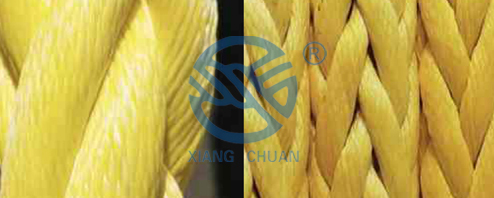we are industry

Mooring Tails are an essential component of mooring systems, which are used to secure ships, offshore platforms, buoys, and other marine structures in place. Mooring tails are long ropes or chains that are attached to the mooring point on one end and to the vessel or structure on the other end. They play a crucial role in distributing the loads imposed on the mooring system and ensuring the stability and safety of the vessel or structure.
The design and selection of mooring tails are critical aspects of mooring system engineering, as they need to be able to withstand the forces exerted on them by wind, waves, currents, and the weight of the vessel or structure. The characteristics of mooring tails, such as their length, diameter, material, and construction, need to be carefully considered to ensure their effectiveness and reliability in different environmental conditions.
One of the key factors to consider when designing mooring tails is their stretch characteristics. Mooring tails need to be able to absorb and dampen the dynamic forces acting on the mooring system, such as wave-induced motions and wind gusts. The stretch of the mooring tails helps to reduce the peak loads on the mooring system and prevents sudden jerks or shocks that could damage the vessel or structure.
The material of the mooring tails also plays a crucial role in their performance. Different materials, such as nylon, polyester, polypropylene, or steel, have different properties in terms of strength, elasticity, abrasion resistance, and UV resistance. The choice of material depends on factors such as the expected loads, working conditions, and environmental factors.
The construction of mooring tails also affects their performance and durability. Mooring tails can be constructed in various ways, such as three-strand, eight-strand, or braided constructions. The construction affects the strength, flexibility, and abrasion resistance of the mooring tails. For example, braided mooring tails are generally more flexible and have higher breaking strength compared to three-strand constructions.
In addition to the design and selection of mooring tails, their installation and maintenance are also crucial for the overall performance of the mooring system. Proper installation ensures that the mooring tails are attached securely and correctly to the mooring point and the vessel or structure. Regular inspection and maintenance of mooring tails are essential to identify any signs of wear, damage, or deterioration and to prevent failures that could compromise the safety of the mooring system.
In conclusion, mooring tails are essential components of mooring systems that play a critical role in securing vessels and structures in place. The design, selection, installation, and maintenance of mooring tails are crucial aspects of mooring system engineering that require careful consideration of factors such as stretch characteristics, material properties, construction, and working conditions. Understanding the science of mooring tails is essential for ensuring the stability, safety, and reliability of mooring systems in different marine environments.
Address:
No.8 Chengnan road,chengnan industry park,Baoying county,Jiangsu China
Email:
E-mail1:vanzer@xcrope.com Vanzer Tao
E-mail2:sales@xcrope.com Wang Peng
E-mail3:grace@xcrope.com Grace Li
E-mail4:info@xcrope.com David Cheng
Company phone:
+86-514-88253368
Overseas sales department:
+86-514-88302931
Copyright By © Jiangsu Xiangchuan Rope Technology Co., Ltd. | All Rights Reserved